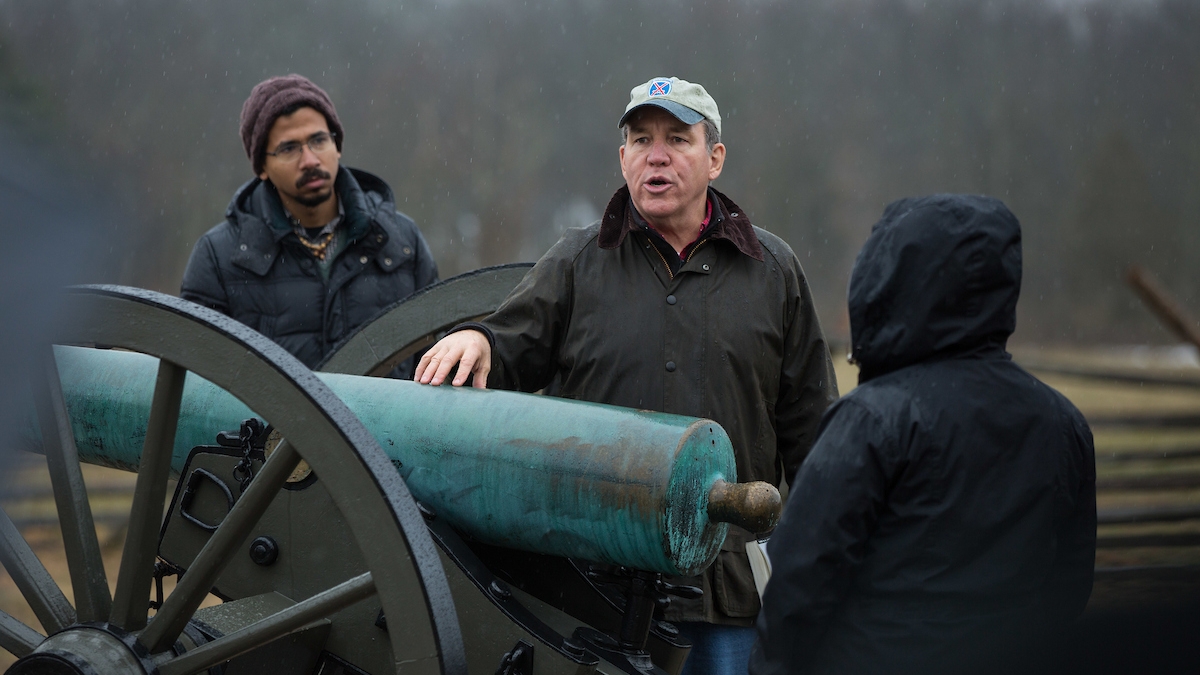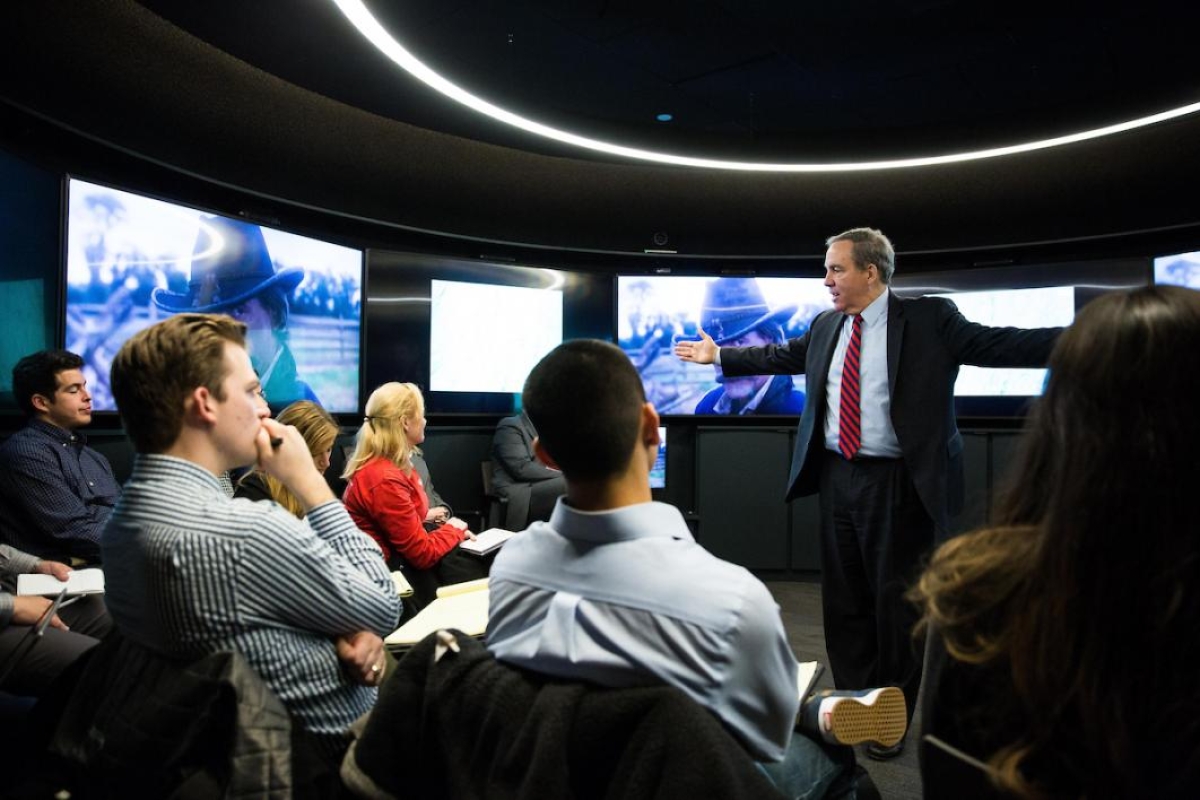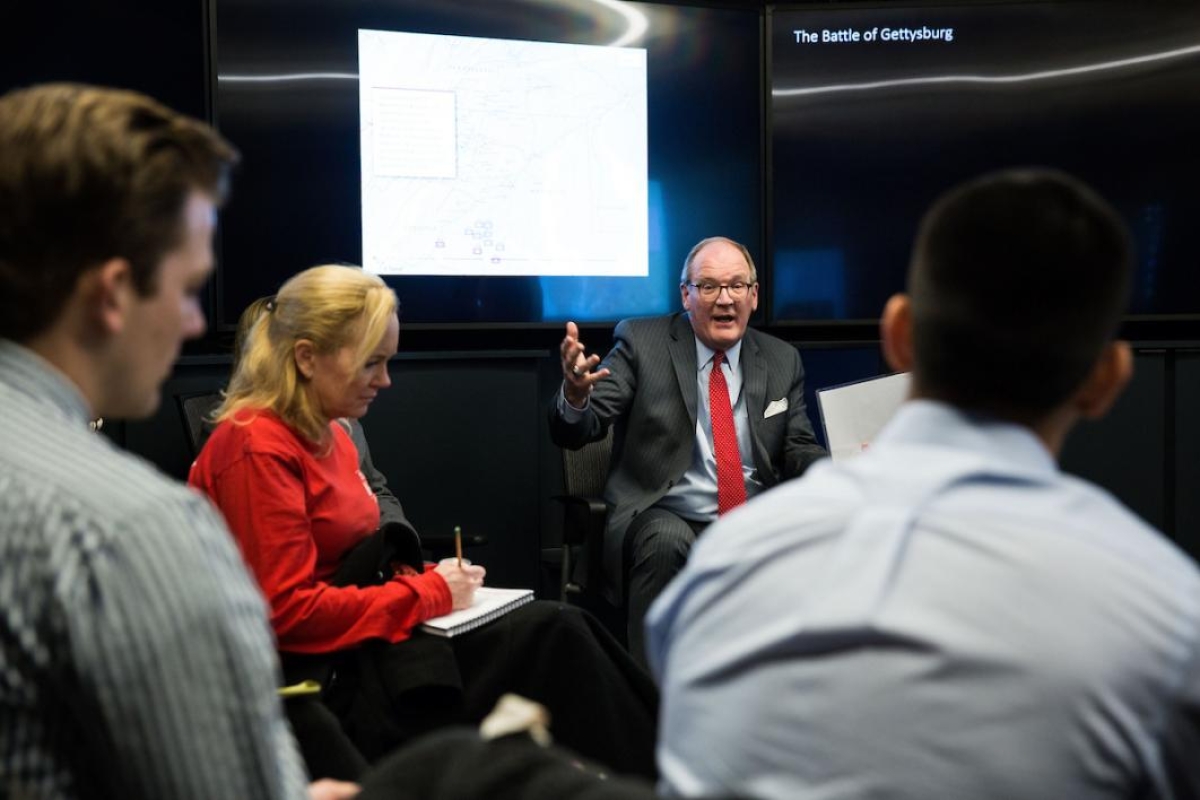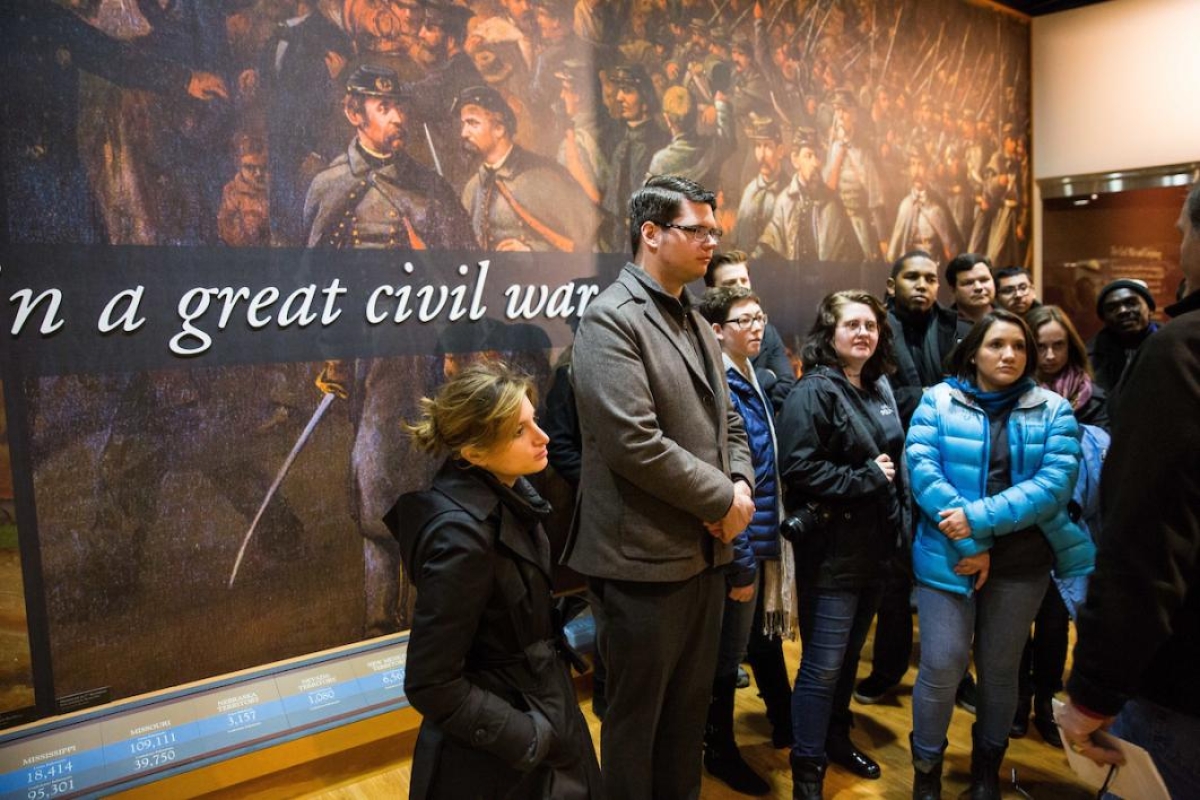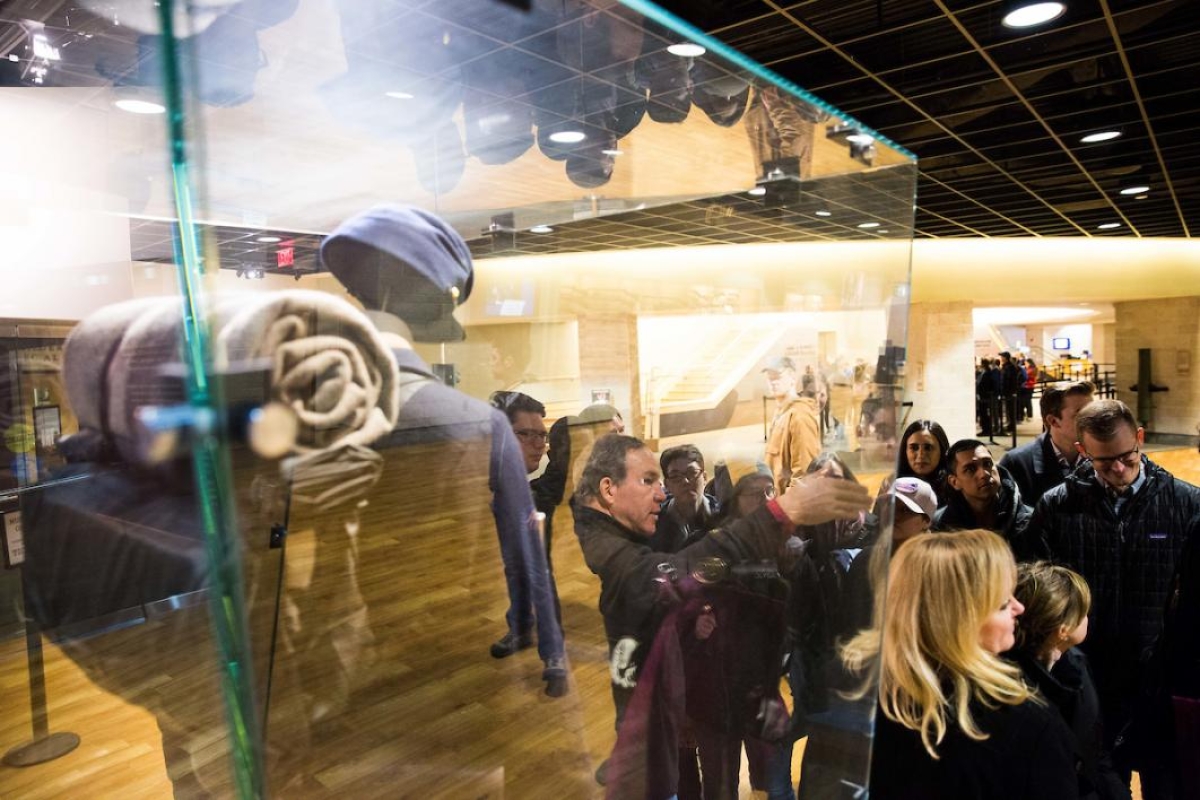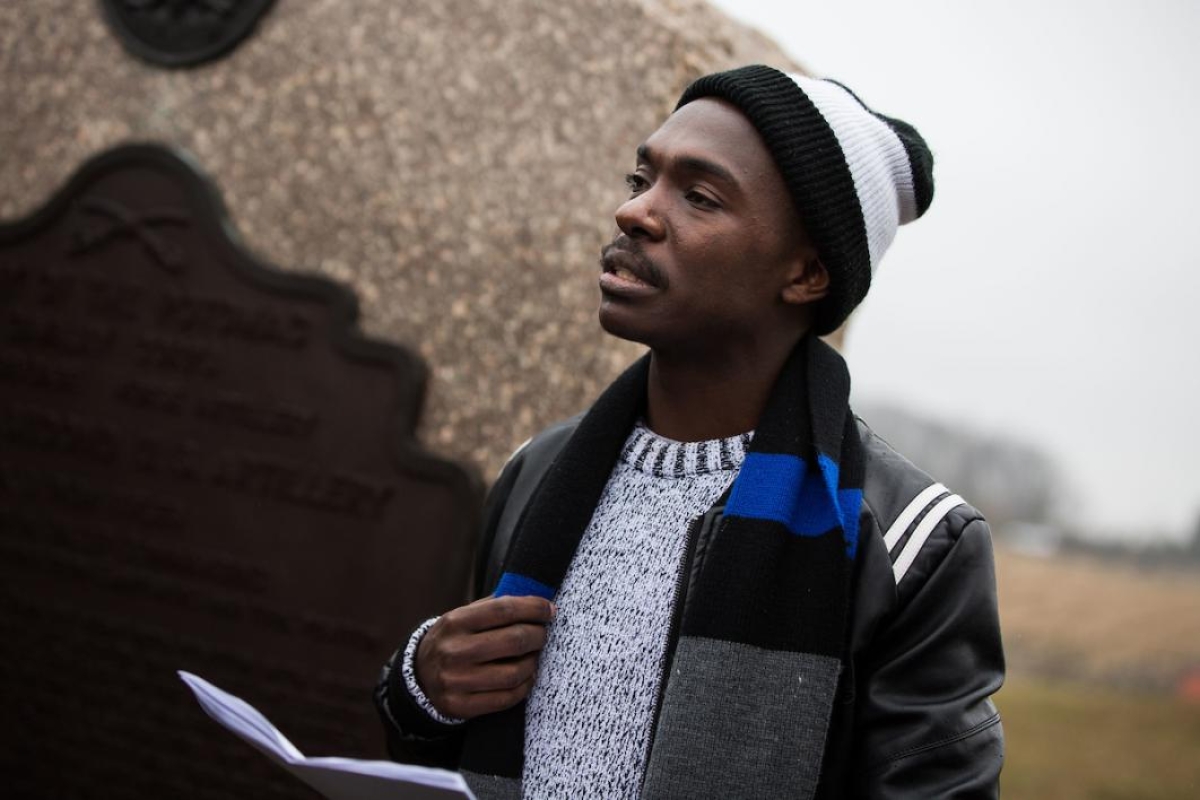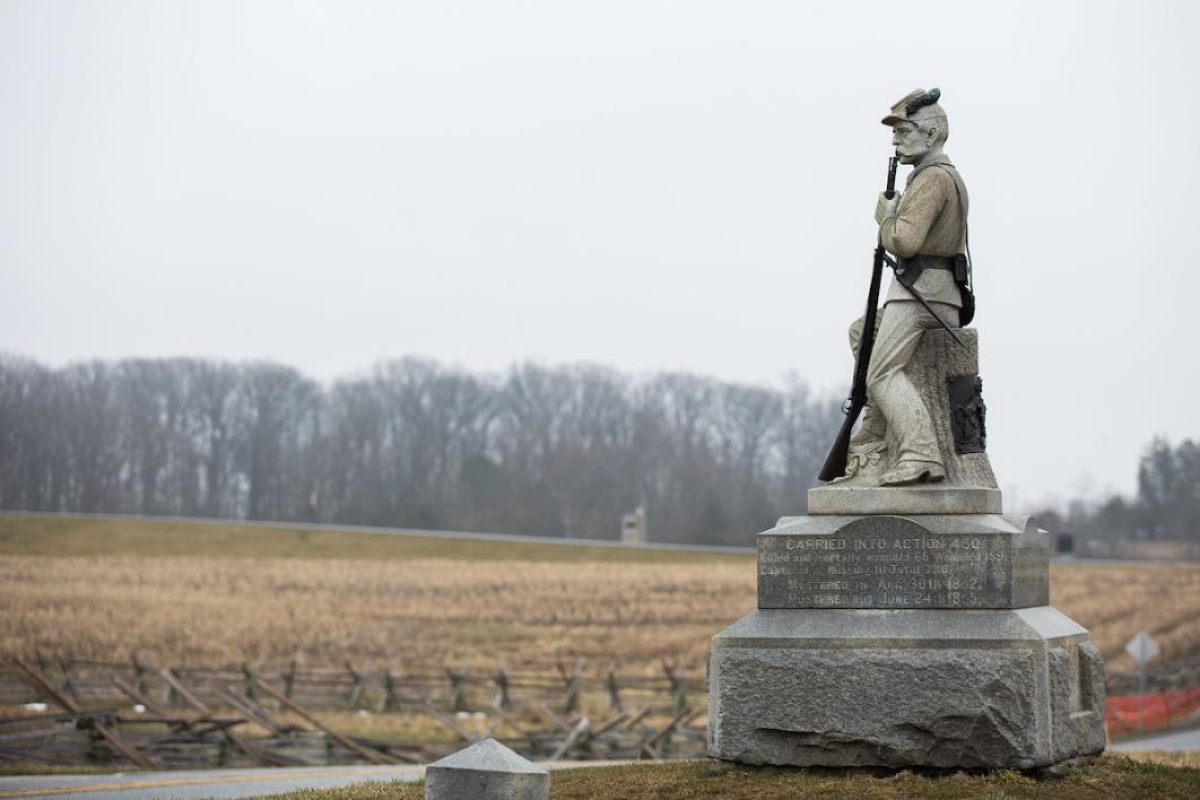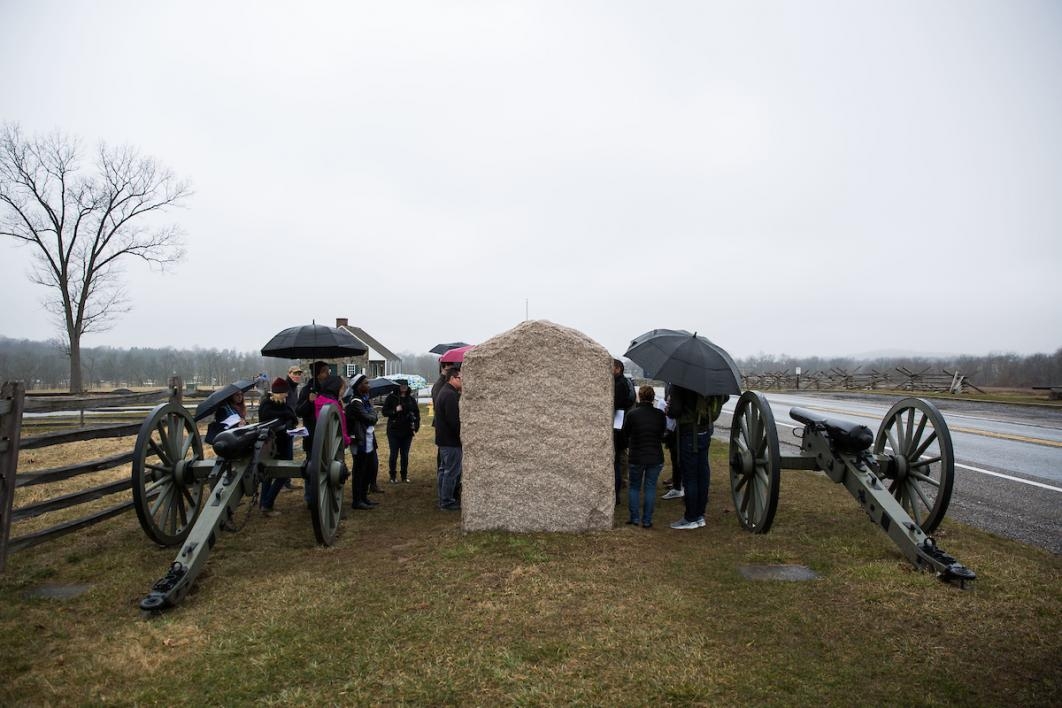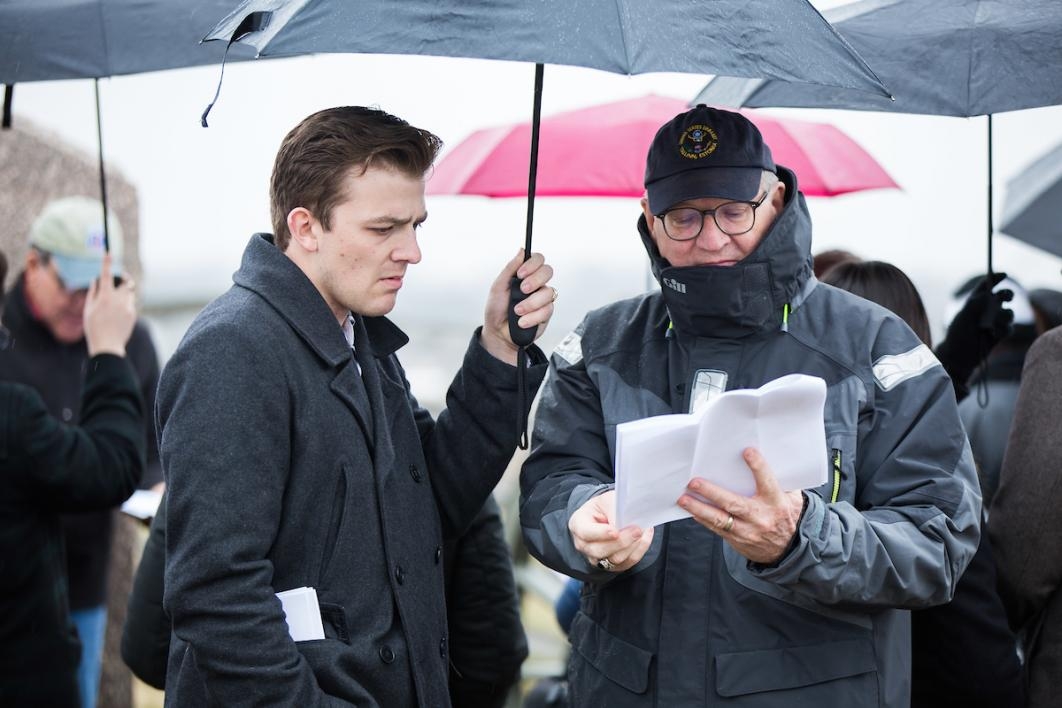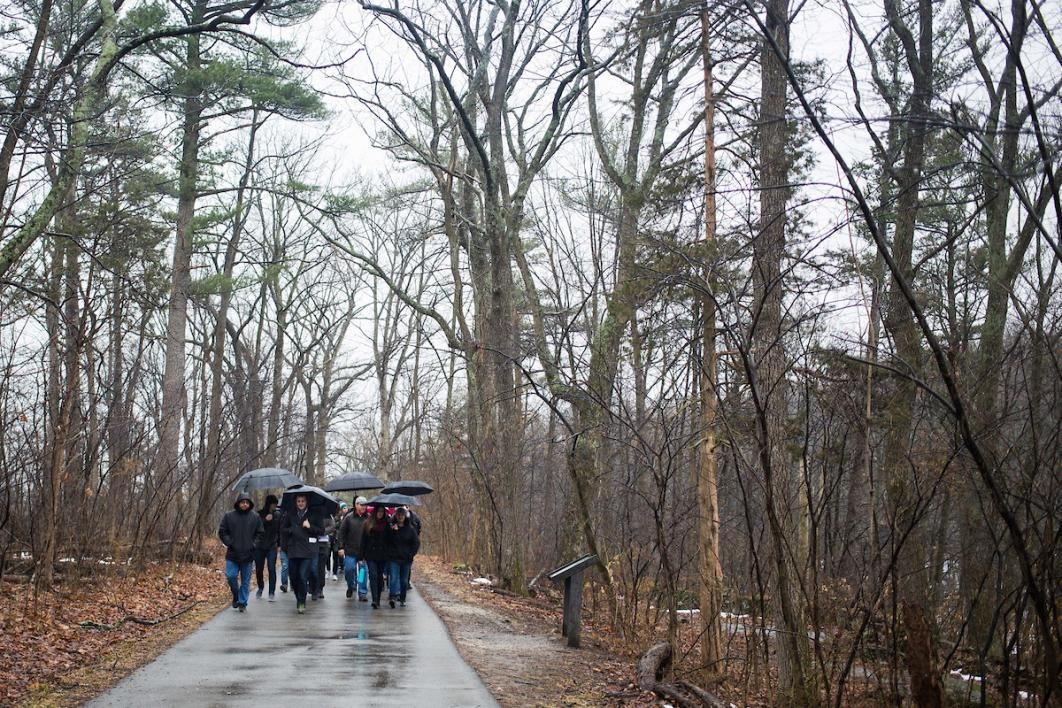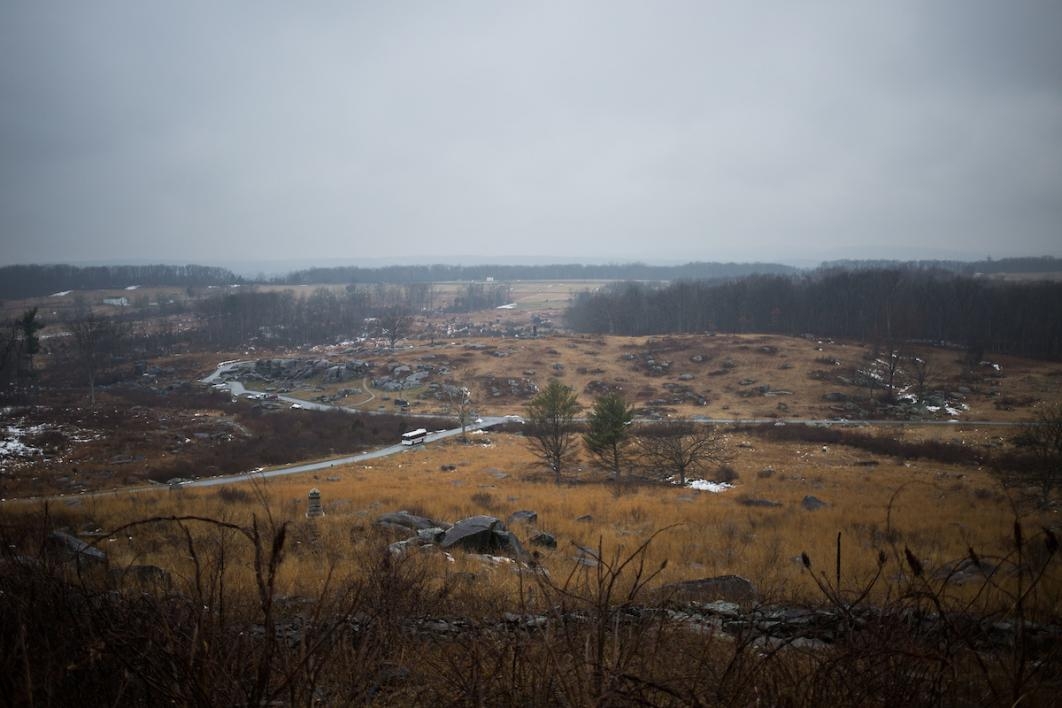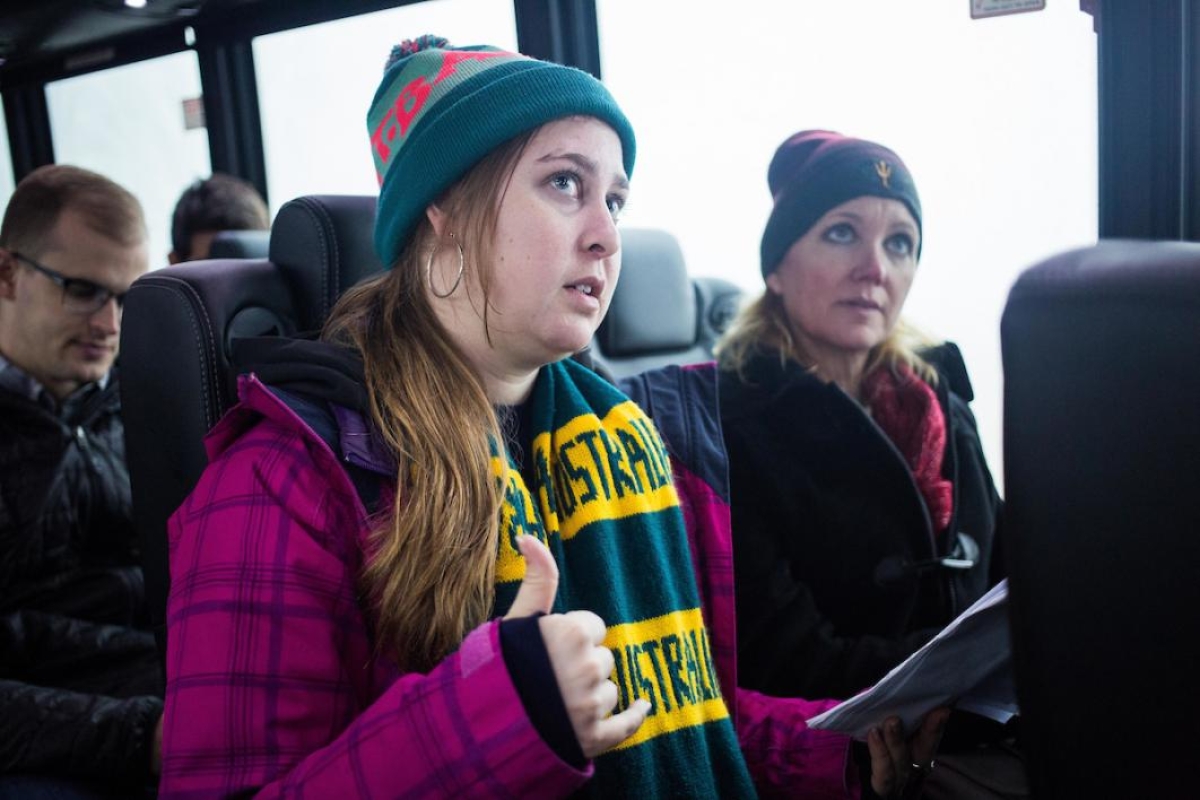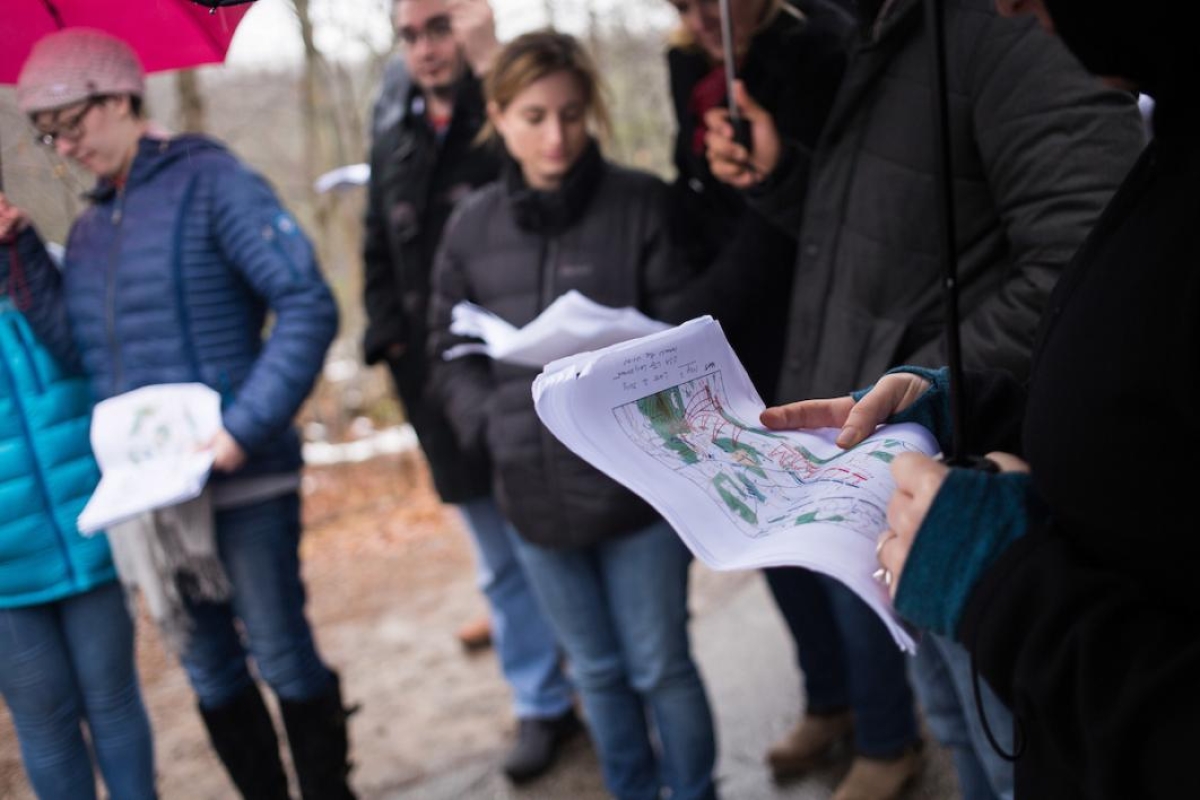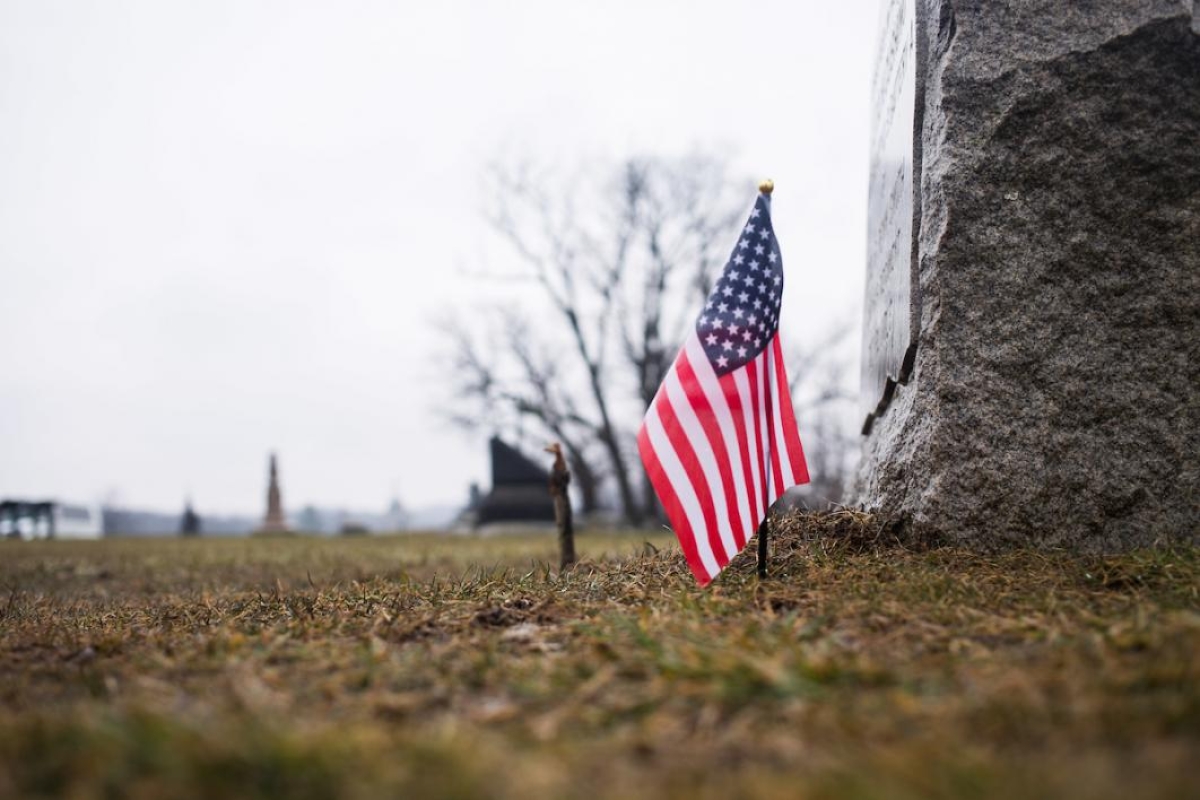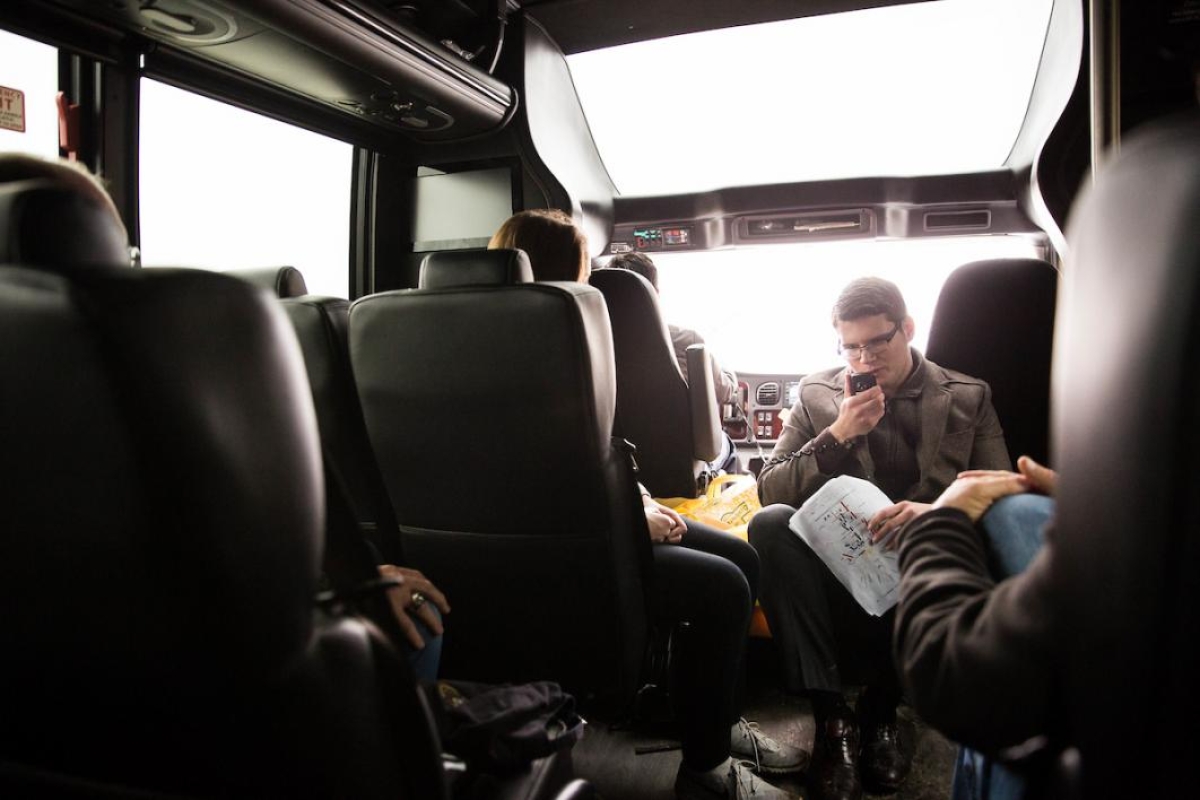Atop the hill at the end of a ridge, Union Army Col. Joshua Chamberlain and remnants of the 20th Maine Infantry occupied a vital position, Little Round Top, that had to be held at all costs at Gettysburg. Chamberlain didn’t know what was going to come next or whether he and his soldiers were going to survive, but he had to be ready.
That was one of the many examples of leadership given by a general and a diplomat as they led a group of Arizona State University students around the Pennsylvania landscape that was home to of the Civil War’s most important battle.
“As leaders you never know when you’re going to be asked to do something that’s totally unexpected,” said retired Army Lt. Gen. Benjamin C. Freakley, former commanding general, now a senior adviser to both ASU President Michael Crow and the McCain Institute for International Leadership. “Part of leadership is being prepared for what might come next.”
On March 28, Freakley, former Ambassador Michael C. Polt and nearly 20 students from ASU’s Rule of Law and Policy Design Studio
This walk-the-hallowed-ground experience took the diplomacy, military action, intelligence and economic factors at play on the battlefield and shaped them into teachable moments on how to survive and thrive in today’s leadership environment.
Setting the scene
The day before heading to historic Gettysburg, Freakley and Polt hosted a two-hour classroom sessionThe field trip exercise was part of a semester-long course for the ASU Policy Design Studio. This semester focuses on how America creates policy. The students form an embassy team and are focused on a particular country. This semester is Afghanistan for undergraduates and Azerbaijan for ASU Law students. in ASU’s Decision Theater to properly set the scene for this pivotal clash. Students learned about Civil War figures, military and diplomatic tactics, intelligence and communication, leadership strategies and the events leading up to Gettysburg.
Freakley also screened key scenes from the 1993 American film epic “Gettysburg,” starring Tom Berenger, Martin Sheen and Jeff Daniels. The scenes helped students envision what took place on those three bloody days in July 1863.
Polt stated that understanding a country’s history and turning points is highly effective when developing and implementing policy.
“In many cases I’ve found overseas that foreigners know more about our history than we do, and that’s a bit embarrassing,” Polt said. “While this is not a history lesson, it’s an important part of your foreign-policy understanding.”
The following morning when students stepped on the bus, it became a mobile learning lab from the moment it pulled away from the curb in front of the Barrett & O’Connor Washington Center, ASU’s new hub in the nation's capital.
Tennis, anyone?
Gettysburg wasn’t just a bloody conflict between the Union and Confederate armies, Freakley explained: It was the manifestation of war as the ultimate instrument of national policy, its success or failure impacted by the way the leaders in the field interpreted and executed the guidance of this key battle.
“Many of these decisions were made in confusion and lacking full information,” Freakley said. “They were made on the ground where they were standing, the weather they had to deal with, and in the capacity of their organization. In other words, just because you can play tennis doesn’t mean you can play tennis with Serena Williams.”
The American Civil War was anything but a tennis match according to Freakley, who first visited Gettysburg at the age of 11. The fighting was brutal, the death tollHistorians believe that approximately 620,000 soldiers — 2 percent of the nation's population at that time — died in the Civil War. They also estimate that casualties amounted to 23,049 for the Union and 28,063 for the Confederates at the Battle of Gettysburg. high and the future of the country desperately hung in the balance.
Freakley and Polt used 13 planned stops to not only discuss the players, politics and policy, but the different leadership skills employed by key Gettysburg figures such as generals Robert E. Lee, George G. Meade, Winfield Scott Hancock, Daniel E. Sickles and James Longstreet.
Union Gen. John Reynolds' story particularly resonated with David Okinyi, an international student from Kenya studying economics and global politics at ASU.
“Even though he died, I was inspired by the fact that Reynolds was the front-runner and that translated to leadership,” Okinyi said. “As a leader, it’s not about giving direction but taking charge of the action.”
Applied leadership field training
This day of applied leadership field training also rubbed off on other students, some who had little previous knowledge of the Civil War. Brazilian-born João Lucas Coimbra Sousa, 27, said he retained what’s important.
“What I’m learning here today is that the right call at the right time can change history,” said Sousa, an ASU Sandra Day O'Connor College of Law student and a criminal defense attorney in Brazil. “You have to be prepared for the unexpected and at the same time, you have to understand the unexpected exists.”
Authority or governorship does not start at a certain age or have an expiration date, and it should be used for the benefit of others, said 22-year-old Kelly Graham, an online student majoring in leadership.
“Being a leader is not something you learn or earn a certificate,” Graham said. “Life’s events will shape and mold you. … Being a leader means you’re constantly growing, and it’s a part of your life’s journey.”
Whether they knew it or not, Freakley said his students became leaders the day they enrolled at ASU.
“They reinforce that the mantle of leadership can fall on our shoulders at any time just like the soldiers at Gettysburg,” Freakley said. “It’s our responsibility to prepare them academically and ethically, and prepare them for when our government, nation or family calls on them to lead.”
Video by Deanna Dent/ASU Now
Key takeaways from the general
Among some of the leadership tips that Freakley shared with students at Gettysburg:
• Policy is about people: “When you make a decision for an organization, a company or a courtroom, you are affecting people's lives. It may not be as dramatic as death on a battlefield, but policy does have human implications.”
• Trust is a must: “Leadership is about relationships and knowing your people. The essence of leadership is building trust.”
• Information is key: “Good leaders always keep their bosses or superiors informed. I used to keep a 3-by-5 card on my desk asking, ‘Who else needs to know?'”
• A little levity can go a long way: “Humor is a nice trait for a leader to have and helps. It reassures people you haven’t lost your balance and can handle the situation at hand.”
• Don’t let your ego get in the way: “Having a spirit of invincibility can be a dangerous thing, and ego can interfere with policy and leadership.”
• Be good to your peers: “One of the hardest things to grasp for leaders is peer leadership. You don’t really have any authority over them, but convincing, helping and working with your peers is very important.”
• Lead down and roll up your sleeves: “Giving clear instruction to your subordinates. Don’t ever ask anyone to do anything that you can’t do yourself.”
• Stay cool when you rule: “Keep calm. When it gets tense, people are looking to you to lead, so think through and stay calm.”
• Psychology matters: “Leaders have to understand the psychology of those who they lead and what they’ll do when they ask them to do something.”
• Empower your employees: “Not only does a good leader provide vision but resources for his or her employee to be successful. A strong leader does not delegate but empowers you to act. ‘Don’t wait for me — do it!’”
• Teamwork is critical: “None of us will solve tough problems without a network of well-trained employees who believe in the mission and work together to accomplish a result. We not only need to train employees to do their jobs, but the jobs of others in order to move on.”
• Vision can be learned but must be practiced: “It’s like reading. If you don’t read or take on more complicated text and learn, then you don’t improve in your comprehension. It’s like lifting weights — you have to do it in order to build up your strength, your capacity.”
• Good leaders possess strong values: “The most important component of being a leader (is) values. That means being a leader of integrity. Being a leader of responsibility. Being a leader of respect. A character-driven leader has a commitment to do the right thing, in the right way for the right reasons in order to set a good example.”
Top photo: Retired Army Lt. Gen. Benjamin C. Freakley speaks about cannons used and the power required to man them in the U.S. Civil War at Oak Ridge during a visit to the Gettysburg National Military Park on March 28 in Gettysburg, Pennsylvania. The McCain Institute's Policy Design Studio focuses on using the study of the Battle of Gettysburg and how it relates to leadership, policy and understanding of U.S. government. Photo by Deanna Dent/ASU Now
More Law, journalism and politics
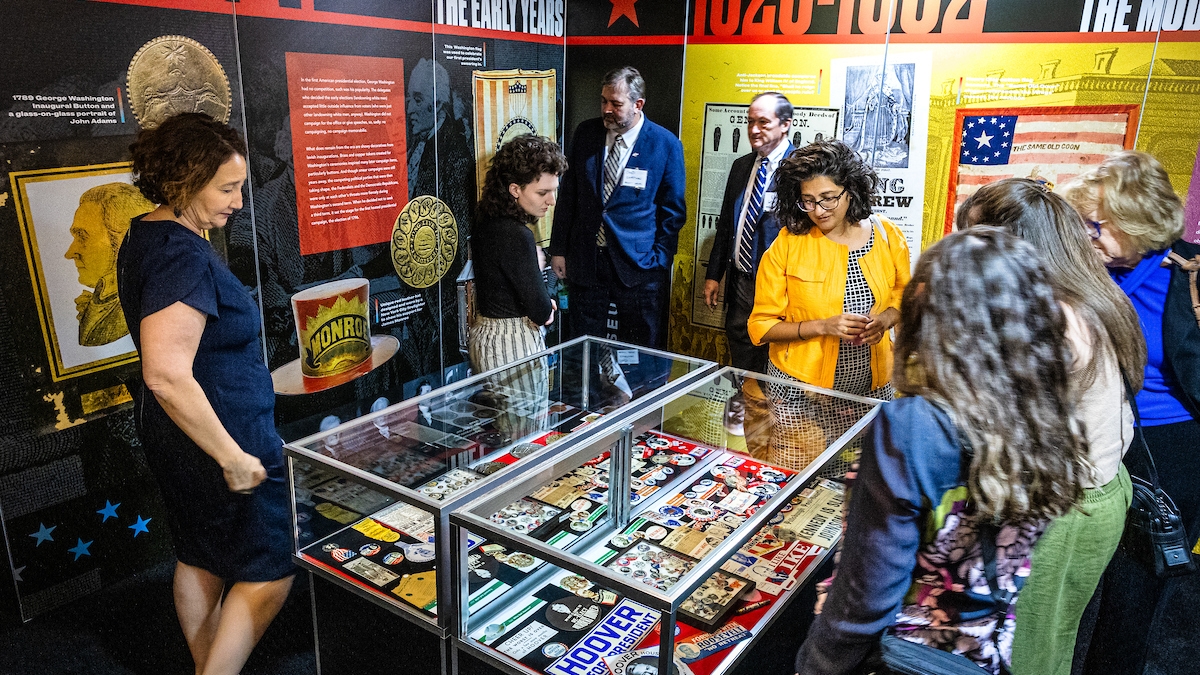
Exhibit uses rare memorabilia to illustrate evolution of US presidential campaigns
After one of the most contentious elections in history, a new museum exhibit offers a historical perspective on the centuries-old American process.“We The People! Electing the American President” had…
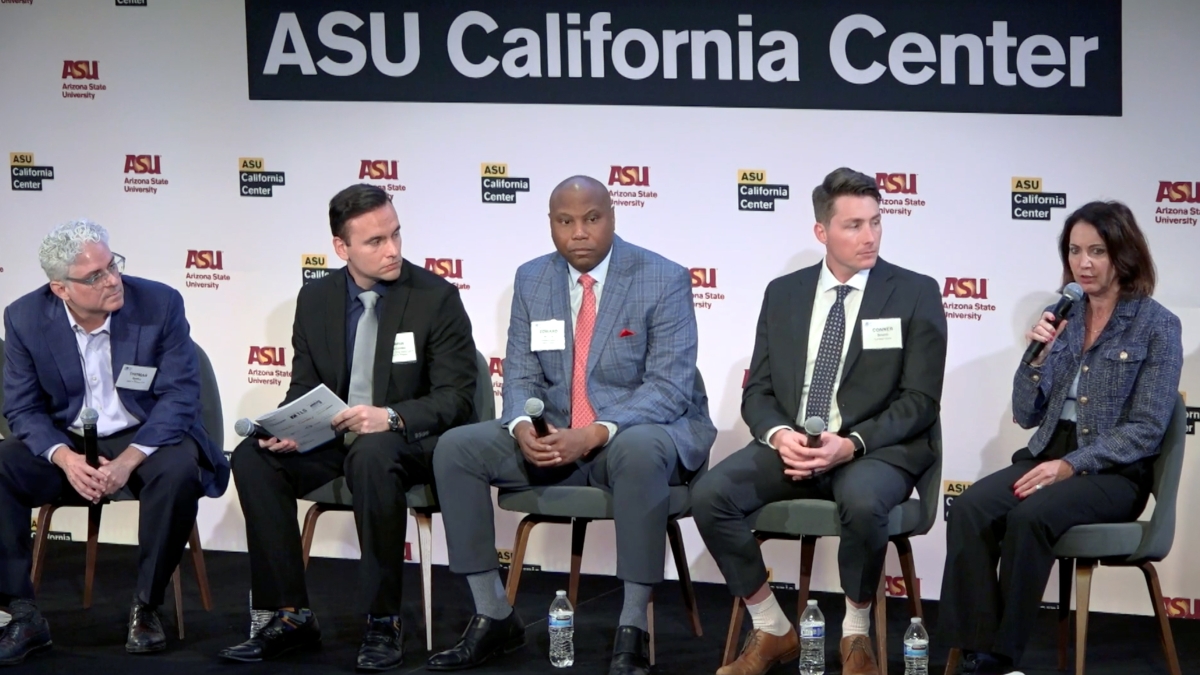
TechTainment conference explores the crossroads of law, technology, entertainment
What protections do writers, actors, producers and others have from AI? Will changing laws around name, image and likeness (NIL) eliminate less lucrative college sports programs?And what does…

How to watch an election
Every election night, adrenaline pumps through newsrooms across the country as journalists take the pulse of democracy. We gathered three veteran reporters — each of them faculty at the Walter…
